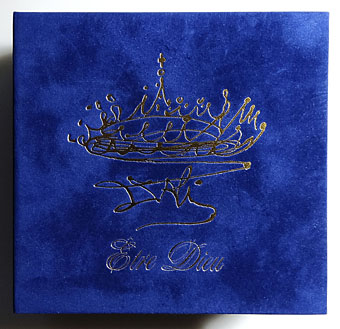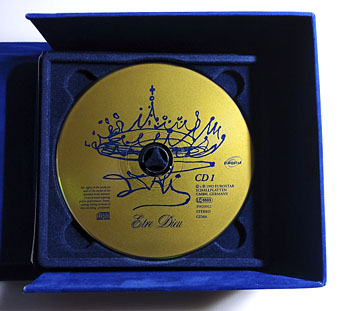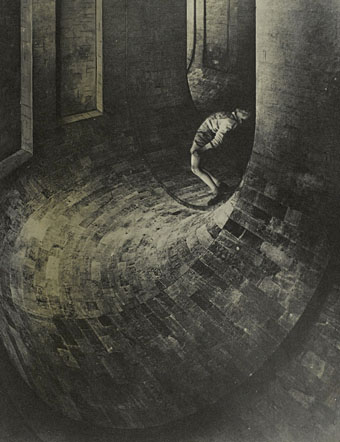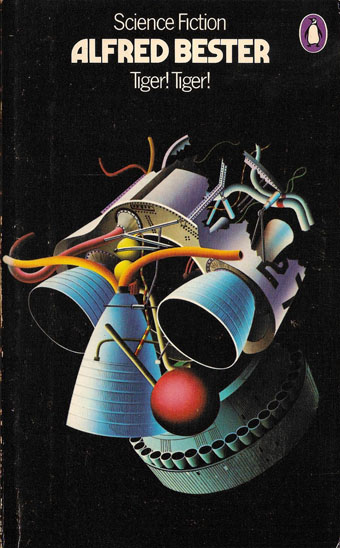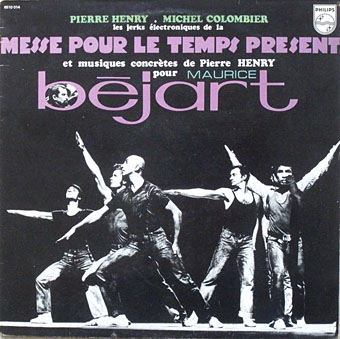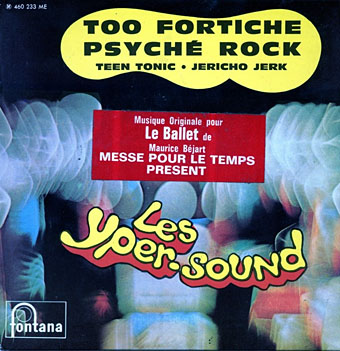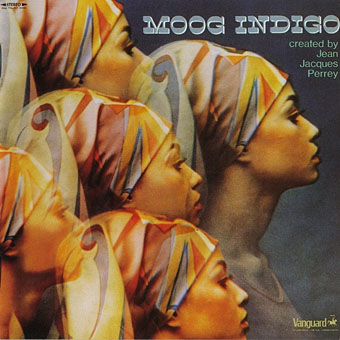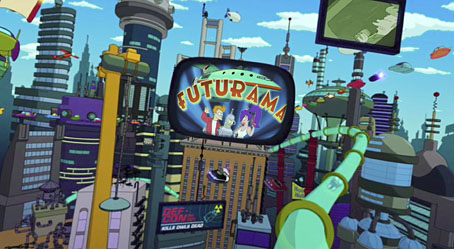Or should that be Wakhévitch versus Dalí? The so-called “Dalí opera”, recorded in 1974, is more an opera by Igor Wakhévitch (music) and Manuel Vázquez Montalbán (libretto) which is interrupted from time to time by Salvador Dalí’s shouts, squeaks, impromptu lectures and even occasional snatches of song. (Dalí couldn’t sing.)
Être Dieu has always been the least accessible of the Wakhévitch compositions, difficult to find and an uneven listening experience that sprawls over three discs. But the (deleted) Eurostar reissue looks very nice: three gold CDs and a thick booklet with a translation of the rambling cosmic scenario, all packaged in a blue felt box. I’ve been rewatching the best of the Dalí documentaries over the past couple of weeks so I’ve felt more accommodating towards Être Dieu than usual; I’m a Wakhévitch cultist, so any Wakhévitch is good Wakhévitch, but I still need to be in the mood for this one. The immediate pleasures are mostly peripheral: Igor’s synthesizers, Delphine Seyrig as one of the celestial components of Dalí’s “divine” character, plus Didier Batard and François Auger from Richard Pinhas’s rock outfit, Heldon, on bass and drums. The Heldon duo get to rock-out properly on the third disc. Buried somewhere in the intersection between this recording, Jean-Christophe Averty’s Soft Self-Portrait of Salvador Dalí (1970) and José Montes-Baquer’s Impressions de la Haute Mongolie (1976) is an intimation of how Dalí might have appeared (or misbehaved) as the Emperor in Alejandro Jodorowsky’s unmade film of Dune.
Previously on { feuilleton }
• Dalí’s discography
• The music of Igor Wakhévitch

